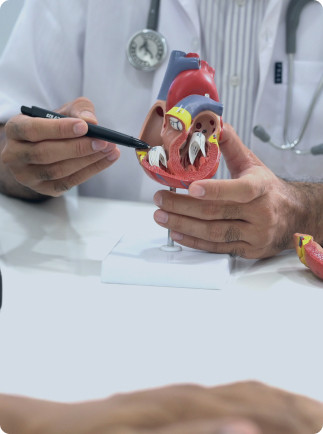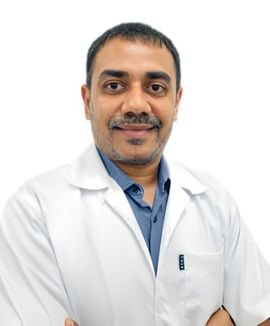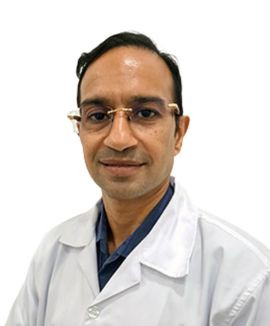Cardiology
- Home
- /
- Cardiology

Cardiology Department
The cardiologists at Amba Health Centre & Hospital (AHCH) are dedicated to providing comprehensive and compassionate care for all aspects of heart health. Our team of highly skilled cardiologists, nurses, and technicians utilizes evidence-based practices to diagnose and treat a wide range of cardiovascular conditions. From routine check-ups and preventive screenings to cardiac rehabilitation, we are committed to helping our patients achieve optimal heart health and improve their overall quality of life. We prioritize patient education and shared decision- making, ensuring that each individual receives personalized care, tailored to their specific needs and goals.
Our Specializations
At AHCH, we specialize in treating the following conditions:
- Coronary Artery Disease (CAD)
- Hypertension (High Blood Pressure)
- Arrhythmias
- Heart Failure
- Valvular Heart Disease
- Cardiomyopathy
- Peripheral Artery Disease (PAD)
Doctors for Cardiology

Dr. Tejas V. Patel
Cardiology
Qualification
MBBS, MD, DM (Cardiologist)

Dr. Vipul Kapoor
Cardiology
Qualification
MBBS, MD, DNB, MNAMS, FESC, FSCAI
FAQ
-
Managing the coronary artery disease often involves a mix of medicines and lifestyle changes. For milder cases, lifestyle changes like adopting a healthy diet, exercising regularly, and quitting smoking may be sufficient. Medications to manage cholesterol levels or prevent blood clots may also be prescribed. If the condition is more severe, minimally invasive procedures like angioplasty with stenting or even open-heart surgery like coronary artery bypass grafting may be required.
-
Your doctor may suggest a comprehensive approach to manage high blood pressure, which could include focusing on a balanced diet, engaging in consistent physical activity, achieving and maintaining a healthy weight, developing stress-management techniques, and adhering to any prescribed medication regimen.
-
A heart attack can present with various symptoms, including chest pain or discomfort, shortness of breath, pain radiating to other areas of the body (such as the arms, jaw, neck, or back), nausea, lightheadedness, and cold sweats. It is important to act quickly and seek emergency medical help if you experience any of these symptoms.
-
Arrhythmias are abnormal rhythms of the heart. Addressing arrhythmias may involve various approaches, such as medication therapy, lifestyle modifications, implantation of devices like pacemakers or defibrillators, or minimally invasive procedures like catheter ablation. Depending on the type of arrhythmia, our team of doctors can advise what treatment would be suitable for you.
-
Your risk of developing heart disease may be increased if you have one or more of the following: high blood pressure, high cholesterol, a smoking habit, obesity, diabetes, a family history of heart conditions, a lifestyle that lacks physical activity, chronic stress, or if you are older in age.
Book an Appoinment
Thank you for your connecting us for appointment. We value your concern and we will revert back shortly to confirm your appointment details.


